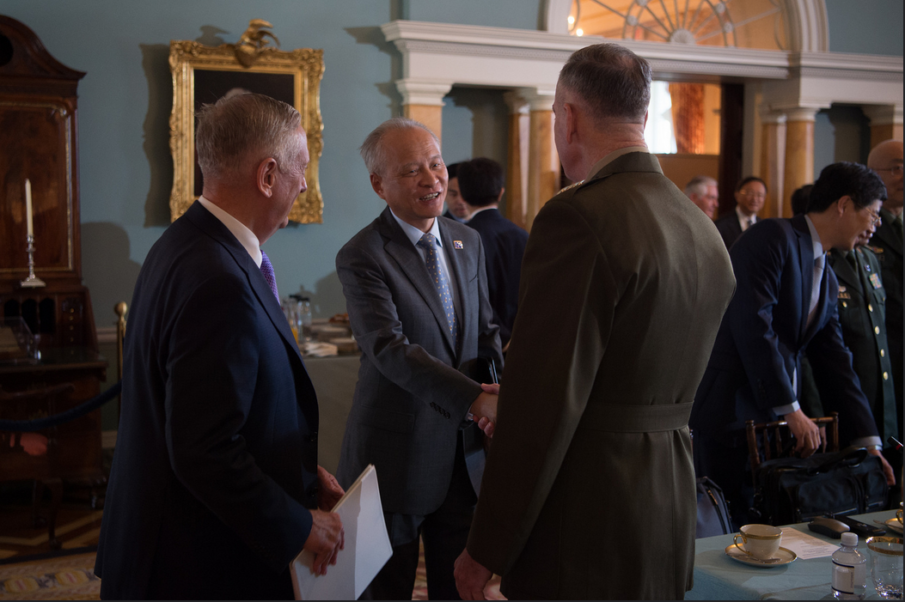In recent months, United States defense officials and diplomats alike have repeatedly urged China to increase pressure on Kim Jong-un’s North Korean regime by way of economic sanctions, fully aware that China represents a robust ninety-percent of North Korea’s import and export markets. As North Korea’s primary ally, China possesses what some believe to be the unique ability to actually force Kim to relinquish his goal of developing a global-strike ICBM with nuclear capabilities.
On Tuesday, China’s Foreign Ministry spokesman, Geng Shuang, went on the verbal offensive, claiming that the idea that China has enough leverage to effect change on the Korean Peninsula is “exaggerated” and calling on other parties to do their part.
“Recently, certain people, talking about the Korean peninsula nuclear issue, have been exaggerating and giving prominence to the so-called ‘China responsibility theory,'” Geng told a daily news briefing, without naming the United States directly.
“I think this either shows lack of a full, correct knowledge of the issue, or there are ulterior motives for it, trying to shift responsibility,” he added. “Asking others to do work, but doing nothing themselves is not OK. Being stabbed in the back is really not OK. The ‘China responsibility theory’ on the peninsula nuclear issue can stop.”
Geng’s reference to being “stabbed in the back” made for an interesting choice of words, as another Chinese diplomat, ambassador to the United States Cui Tiankai, spent the same day in Washington D.C. attempting to explain away the nearly forty percent year over year increase in China’s trade with North Korea since the United States began asking for help in economically isolating the aggressive regime.
“Trade between China and North Korea grew almost 40% in the first quarter,” President Trump said in a Tweet on Wednesday. “So much for China working with us — but we had to give it a try!”
“This is a distorted picture,” Cui Tiankai claimed in a statement issued at one of D.C.’s think tanks. He went on to claim that trade after the first quarter (which is the period in which trade increased) dropped by as much as 41 percent in April and 32 percent in May as a result of China’s decision to ban North Korean coal imports.
Most importantly, the ambassador explained, the United Nations’ sanctions only refer to military equipment, and do “not constitute an embargo.”
“Normal trade … is not banned by these sanctions,” Cui explained.
China, in both cases, reiterated their proposal for a “suspension for suspension” strategy with North Korea, in which the United States and its allies like South Korea stop conducting military exercises along the North Korean border, and in return, North Korea would halt its weapons development programs. The United States has attempted similar agreements with North Korea in recent decades, in what President Trump referred to as “strategic patience,” which most within the Trump Administration and on Capitol Hill believe to have been a failed enterprise.
These seemingly disjointed defenses of China’s policy on North Korea are nothing new in the region, as the same country has rapidly militarized portions of the South China Sea and claimed sovereignty over huge expanses of the international waterway, all the while accusing the United States of being the aggressor for sailing its vessels and flying over regions most of the international community consider to be international waters.
Already have an account? Sign In
Two ways to continue to read this article.
Subscribe
$1.99
every 4 weeks
- Unlimited access to all articles
- Support independent journalism
- Ad-free reading experience
Subscribe Now
Recurring Monthly. Cancel Anytime.


COMMENTS